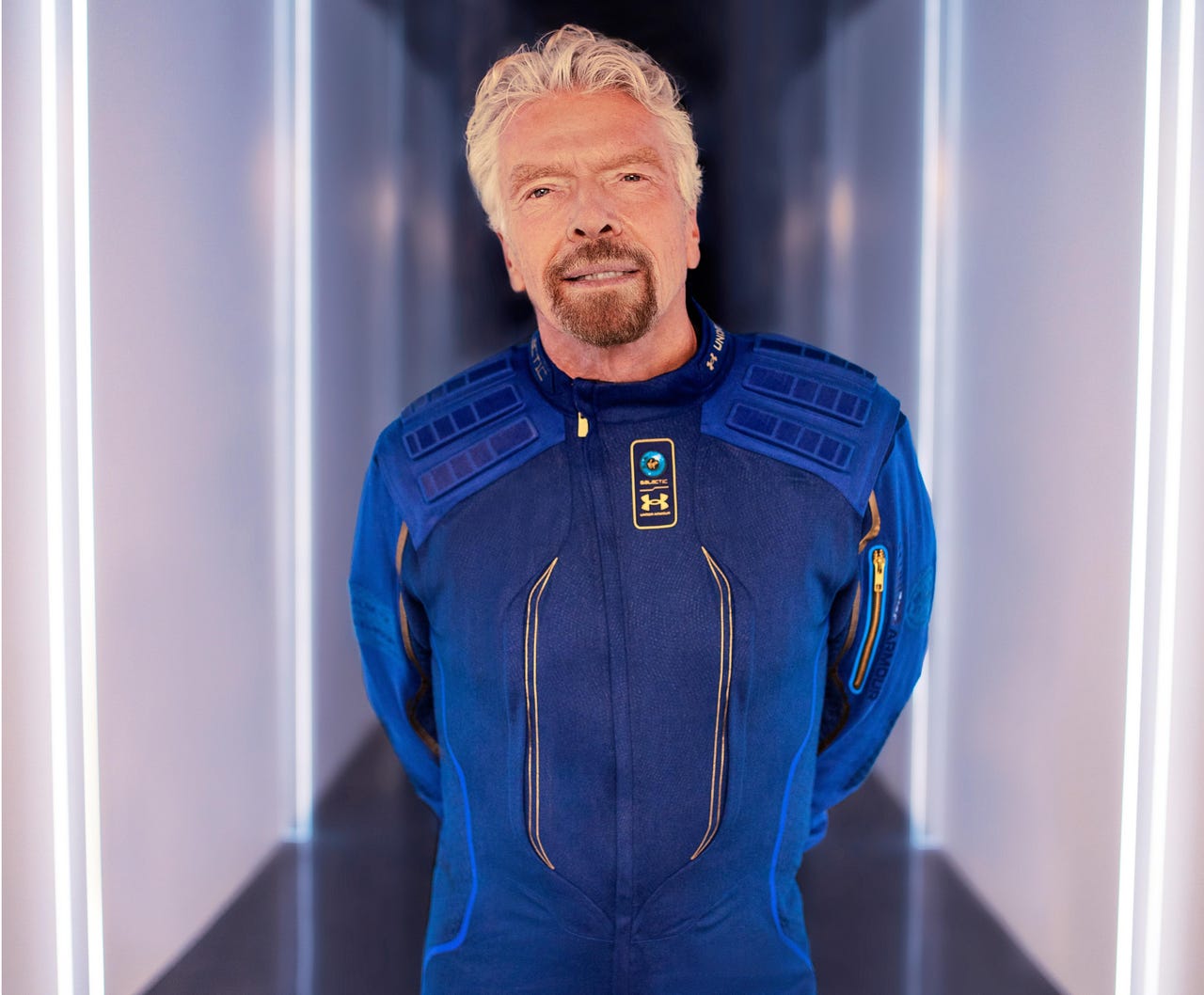Virgin Galactic to send Richard Branson into space on July 11


Richard Branson's Virgin Galactic has named July 11 as the opening of the flight window for its next rocket-powered test flight of its SpaceShipTwo (SS2) VSS Unity operation.
The "Unity 22" mission will be the 22nd flight test for VSS Unity and the company's fourth crewed spaceflight. It will also be the first to carry a full crew of two pilots and four mission specialists in the cabin, including Branson himself.
Joining the company's founder will be Virgin Galactic chief astronaut instructor Beth Moses, who will serve as cabin lead and test director in space; lead operations engineer Colin Bennett; and VP of government affairs and research operations Sirisha Bandla.
Branson will evaluate the "private astronaut experience", Virgin Galactic said, and undergo the same training, preparation, and flight as the company's future astronauts.
The company has more than 600 customers who have put their hands up to be one of the first to pay some $250,000 to be sent into space.
"I truly believe that space belongs to all of us. After more than 16 years of research, engineering, and testing, Virgin Galactic stands at the vanguard of a new commercial space industry, which is set to open space to humankind and change the world for good," Branson said.
"It's one thing to have a dream of making space more accessible to all; it's another for an incredible team to collectively turn that dream into reality. As part of a remarkable crew of mission specialists, I'm honoured to help validate the journey our future astronauts will undertake and ensure we deliver the unique customer experience people expect from Virgin."
Virgin Galactic will share a global livestream of the spaceflight that has been touted as focusing on "cabin and customer experience objectives". Pending weather and technical checks, it is expected to begin at 7:00am MDT/9:00am EDT on July 11 -- more than a week before Amazon founder Jeff Bezos was planning on being the first billionaire in space.
Last month, Bezos announced that he and his younger brother Mark Bezos will be flying to space on board the first crewed flight that will be operated by Blue Origin, the aerospace company that Bezos founded in 2000.
Scheduled for lift-off on July 20, the flight will be on board Blue Origin's New Shepard rocket ship, which has been in testing since 2015. On Friday, it was announced Wally Funk join the Bezos brothers and the auction winner on the flight. Funk paid $200,000 in 2010 for a Virgin Galatic ticket.
According to Blue Origin, Funk finished top of her class in 1961, when she was the youngest graduate of the Woman in Space Program, a privately-funded project which tested female pilots for astronaut fitness. Later known as "Mercury 13", the project saw 13 American women undergo the same physiological and psychological screening tests as the astronauts selected by NASA for Project Mercury, but they never flew to space.
Earlier this week, Virgin Orbit, the separate satellite service Branson founded, successfully deployed into orbit all seven of the customer satellites onboard its LauncherOne rocket as part of the Tubular Bells: Part One mission.
Virgin Orbit's 747 carrier aircraft Cosmic Girl took off from Mojave Air and Space Port and flew out to a launch site over the Pacific Ocean, about 80kms south of the Channel Islands.
"After a smooth release from the aircraft, the LauncherOne rocket ignited and propelled itself towards space, ultimately deploying its payload into a precise target orbit approximately 500km above the Earth's surface," Virgin Orbit said.
LauncherOne carried a total of seven satellites to Low Earth Orbit (LEO) for this rideshare mission, comprising four R&D cubesats for the US Department of Defense, two optical satellites for SatRevolution, and the Royal Netherlands Air Force's first military satellite.
RELATED COVERAGE
- Virgin Galactic optimistic about the future opportunities in space
- Virgin Galactic announces preparations for its first spaceflight, investors unconvinced
- Amazon founder Jeff Bezos is off to space on board Blue Origin's first crewed flight
- SpaceX rival? Virgin Orbit just used a modified 747 to launch a rocket into space
- Amazon vs Elon Musk's SpaceX: Bezos' internet from space plan moves a step closer